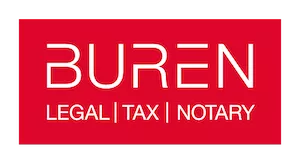- within Employment and HR topic(s)
- in European Union
- within Privacy, International Law and Finance and Banking topic(s)
- in European Union
- with readers working within the Insurance industries
In many cases, it is clear whether someone is working under an
employment contract or under a service contract as a self-employed
professional. Sometimes it is not that simple.
On Budget Day, the Dutch government announced its intention to
clarify the rules on this topic. A bill will be introduced to
provide greater job security for flexible workers, with measures
aimed at better protecting temporary workers, agency workers, and
on-call employees. The proposal also aims at clarifying when
someone works as employee or as self-employed. A mandatory
disability insurance scheme for self-employed professionals will be
introduced in order to better protect self-employed professionals
against income loss against long-term disability and to increase
the level playing field between different types of workers. In
addition, the Dutch tax authorities will resume the enforcement of
the employment classification rules for wage tax purposes to combat
false self-employment.
This alert provides an update on several key points of the
legislation on self-employed professionals (ZZP).
Three focus areas
To ensure that individuals work under the appropriate contract
type, the government will focus on the following three areas:
- Strengthening and improving enforcement by the Dutch tax authorities, in preparation of the lifting of the enforcement moratorium on 1 January 2025.
- Ensuring the level playing field between different contract types.
- Clarifying the rules on the classification of agreements.
1. Lifting the Enforcement Moratorium on 1 January
2025
As from 1 January 2025, the Dutch tax authorities will fully
enforce regulations against false self-employment. Companies and
organizations which hire individuals as self-employed professionals
for work they do not perform independently may face fines and
additional tax assessments. It is therefore important to assess
whether self-employed professionals work as independent service
providers or should actually be classified as employees.
The government wants to normalize the enforcement of the employment
classification rules for wage tax purposes as much as possible.
Lifting the enforcement moratorium, which has been in place since
2016, is a first step in that direction.
- As from 1 January 2025, the normal rules for enforcement by the Dutch tax authorities will apply. This means that errors in the classification of employment relationships for wage tax purposes can immediately result in correction obligations, additional tax assessments and fines without prior warnings or instructions.
- The corrections can be imposed retroactively, but only from the date of lifting the moratorium onwards, i.e. 1 January 2025. This means that errors made before this date less likely result in penalties unless there is evidence of malice or in case previous warnings have not been followed up.
- For the period before 1 January 2025, the Dutch tax authorities can only impose corrections in cases of malice or in case previous warnings have not been followed up. In these cases, corrections can be made with a retroactive effect of maximum five years or the moment on which the Dutch tax authorities issued the instruction. This means that the Dutch tax authorities can correct errors with a retroactive effect of five years.
The government wants to prevent that substantial fines (in
Dutch: 'vergrijpboetes') immediately will be
imposed to parties which are actively engaged to correct
classification of employment relationships after the enforcement
moratorium will be lifted. In the year 2025 the Dutch tax
authorities will therefore be lenient in imposing substantial fines
on employers and workers who can demonstrate that they are actively
working to reduce false self-employment. However, minor penalties
(in Dutch: 'verzuimboetes') could still be
imposed.
2. Level playing field between different contract
types
The unequal treatment of different contract types under labour law,
social security and tax law can create inappropriate incentive to
work outside of employment relationships. Several announced
measures aim at levelling the playing field between employees and
self-employed professionals. One example is the possible
introduction of a mandatory basic disability insurance for
self-employed professionals.
On 11 June 2024 an internet consultation started on the draft bill
on the Basic disability insurance for self-employed professionals
Act. The objective of the bill is to improve the balance between
employees and self-employed professionals and to provide income
security for self-employed professionals in case of disability.
Another objective is to reduce pressure on social assistance and to
strengthen the social security system.
3. Clarifying the rules on the classification of contracts:
'Act on the clarification assessment of employment
relationships and legal presumption' (VBAR)
The VBAR is a draft bill designed to clarify the status of
employment relationships, i.e. determining when someone is working
as an employee and when they can work as a self-employed
professional. The VBAR introduces a new assessment framework, the
"WZOP test", which will help determine whether someone is
self-employed or an employee. In addition, the WZOP introduces a
presumption of employment for self-employed professionals who
charge an hourly rate below a certain threshold. This presumption
means that self-employed professionals with a low hourly rate are
considered employees unless proven otherwise.
The WZOP Test
The WZOP test is the core of the bill. This assessment framework
will determine whether there is a genuine employment relationship
(employer-employee) or whether someone is working as a
self-employed professional. The test examines several elements of
the working relationship:
- Employee (Werknemer): Indications of working as an employee (substantive and organisational control). This criterion assesses the extent to which the client controls the execution of the work. The greater the control, the greater the likelihood that the relationship will be classified as employment.
- Self-employed professional (Zelfstandige): Indications of working as a self-employed professional within the working relationship (working at their own risk and expense). This element concerns the self-employed professional's position within the organization. Are they considered part of the team, are they financially liable to risks, or do they operate independently externally?
- OP: Characteristics indicating the professional's entrepreneurship (overall entrepreneurship) for similar work. Relevant factors are for example whether the professional have more clients per year or whether sizable business investments have been made.
Presumption of employment relationship
The bill also includes a presumption of an employment relationship
based on hourly rates. This presumption makes it easier for workers
at the lower end of the labour market to prove they work under an
employment contract. If a worker or a trade union invokes the
presumption, they must prove that they receive less than the
applicable hourly rate of EUR 33. The burden of proof then shifts
to the employer. The government expects that this measure will have
a preventive effect, encouraging employers to be more critical in
deciding whether an employment contract is necessary at the start
of the relationship.
If the bill will be adopted, employers will need to reassess
whether self-employed professionals engaged under a service
agreement are genuinely independent or should actually be treated
as employees for legal and (wage) tax purposes.
The VBAR is expected to enter into effect on 1 January 2026. On 21
June 2024, the Minister of Social Affairs and Employment submitted
the bill to the Council of State. The bill has not yet been
presented to the Lower House. The precise details of the VBAR
remain unclear. Despite the intended date of entry into force of 1
January 2026, there are doubts on the feasibility of this date and
whether on the bill will be adopted at all.
Conclusion
If the VBAR will be adopted, there will be significant changes for
companies working with self-employed professionals and for the
professionals themselves. The introduction of the WZOP test and the
presumption of an employment relationship for self-employed
professionals charging a low hourly rate will cause that clients
must closely monitor the conditions under which they engage
self-employed professionals. Moreover, clients risk fines and
additional tax assessments if employment relationships are not
correctly classified due to the lifting of the enforcement
moratorium on 1 January 2025. It is therefore essential to take
action now.
Thanks to Emma Daramaja
Originally published 19 September 2024
The content of this article is intended to provide a general guide to the subject matter. Specialist advice should be sought about your specific circumstances.




